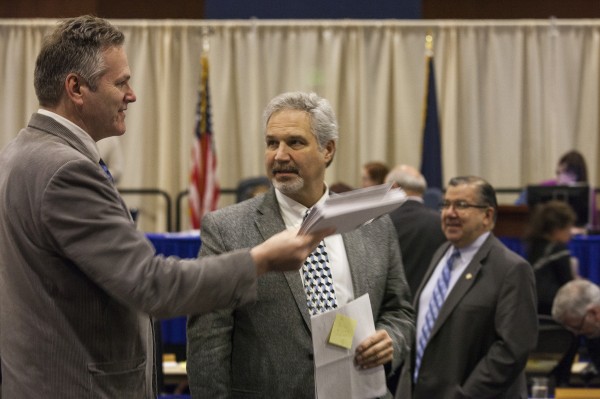
Lawmakers are taking the contentious oil tax debate down to the wire.
On Wednesday afternoon, the Senate passed its version of the oil tax bill — handing it off to the House with less than twelve hours left in the session.
The Senate legislation left out key elements of the House bill that passed last Friday, after a bipartisan coalition bucked the lower chamber’s Republican leadership to approve a wide-ranging revision of the state’s oil tax system.
Both versions of the bill would end subsidies for small companies operating in Cook Inlet, which have cost the state hundreds of millions of dollars in recent years.
But the House bill would also change the tax regime on the North Slope, in part by raising the minimum tax on oil production and making it impossible for large producers to use losses in one year to reduce taxes in future years.
Senate Finance co-chair Anna MacKinnon, R-Eagle River, said the House version went too far — adding that the Senate approach also wasn’t ideal, even as she urged fellow lawmakers to vote for it.
“Mr. President, companies don’t like this bill. They absolutely don’t like this bill. I don’t like this bill either,” MacKinnon said. “I think it doesn’t incentivize production like we want it to do. But we can’t afford to continue to pay credits, based on our cash flow.”
But Rep. Paul Seaton, the Homer Republican who brokered the bipartisan compromise in the House, said the Senate simply didn’t go far enough.
“I’m disappointed that they cut it down that much,” he said. “Really, they’re just affecting Cook Inlet, which is a small piece of the whole oil tax credit problem.”
Both bills would be phased in over several years. Neither would have any major impact on the budget for this coming year, in which the state faces a deficit of about $4 billion.
The House is scheduled to debate whether to accept the Senate’s bill this evening. If lawmakers do not meet the midnight deadline, they can extend the session for up to ten days, or start over in a special session.
Rachel Waldholz covers energy and the environment for Alaska's Energy Desk, a collaboration between Alaska Public Media, KTOO in Juneau and KUCB in Unalaska. Before coming to Anchorage, she spent two years reporting for Raven Radio in Sitka. Rachel studied documentary production at the UC Berkeley Graduate School of Journalism, and her short film, A Confused War won several awards. Her work has appeared on Morning Edition, All Things Considered, and Marketplace, among other outlets.
rwaldholz (at) alaskapublic (dot) org | 907.550.8432 | About Rachel




